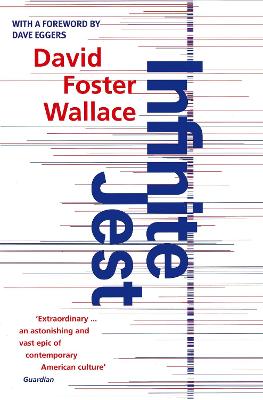Reviewed by mary on
When I opened my Christmas gift from my sister, I saw a big book with blue sky and clouds on the cover and a picture of a scruffy, sort of pursed-lipped, bandana-wearing guy on the back. My sister told me it was about time I read the novel I have been eyeing for quite a few years. And this book did seem to be up my alley based on the synopsis: it seemed to be about tennis and I had been an avid player in high school.
I read the book over Christmas break , growing bedsore as I turned page after page. It was just that compelling of a book, a fact that become more significant as you wind your way deeper into the book and its central theme of addiction. From the moment after I finished this book, I've continued to be hit by how the cycles and rationalizations of addiction and need described seem to bear on my own life and the generally life of most humans. It's been some time since I've read all the way through to the end of this MASSIVE novel and I wonder if there might be late sections that strike more of a chord with me now, being older and all.
The thing I most appreciated about Wallace's writing is this hidden, private truth, things one thinks and then later hates himself for thinking which prevents one from saying such thoughts aloud. I could always recognize little bits of myself in plenty of Wallace's writing, and I figured he was really honest at his best.
I am a big fan of Wallace's work. I still mourn Wallace's death with great sadness. I find it is easy to forgive whatever's bad or inexplicably difficult within his work because of how good the really good is. Don't get me wrong: a lot of his stuff is just too weird, almost unreadable or even boring. But when he's good, I believe he's just about beyond compare.
Reading updates
- Started reading
- Finished reading
- 7 July, 2012: Reviewed
